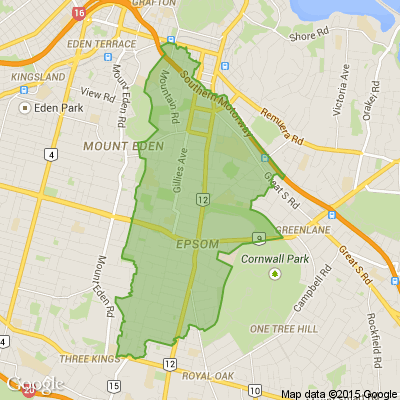
Know what’s happening
Access the private noticeboard for verified neighbours near you. Keep informed about any suspicious activity, send urgent updates to your neighbours when required and discuss emergency planning.
Get to know your neighbours
Browse the directory and start getting to know your neighbours. Don’t want to post to the whole neighbourhood? Send a private message.
Buy, sell and give away
Want to declutter your garage? Buy some used household items? Give away some garden stuff? Become a verified neighbour to browse and post items for sale. Trading is simple when everyone lives nearby.


Nearby
Newmarket, Parnell, Three Kings, Remuera, One Tree Hill, Onehunga, Hillsborough, Royal Oak, Grafton, Mount Eden, GreenlaneNeighbourly data breach Q&As
We have updated our Q&A with some of the more common questions, please check it out here.

Thank you for using Neighbourly
You may receive an email confirmation for any offer you selected. The associated companies will contact you directly to activate your requests.
The Team from New Zealand Police
Police are appealing to the public for any footage they may have of the mass disorder that occurred on Karangahape Road in Auckland in the early hours of Sunday 28 December.
Emergency services were called to the disorder around 3.41am where it is estimated around over 50 people were present.
A … View morePolice are appealing to the public for any footage they may have of the mass disorder that occurred on Karangahape Road in Auckland in the early hours of Sunday 28 December.
Emergency services were called to the disorder around 3.41am where it is estimated around over 50 people were present.
A Police investigation is underway after there were three serious assaults on and around Karangahape Road during the mass disorder.
A portal has been set up to allow the public to upload any footage they have of the disorder and the serious assaults.
The portal is https://dahr.nc3.govt.nz/
Police have arrested one person but are asking for help to identify and locate others involved.
• Around 4:15am there was a serious assault outside the Crown Bar on Queen Street.
A 33-year-old man received serious injuries and was hospitalised.
The offender is still unknown, and the Police file number is 251228/4647.
• Around 4:30am there was another serious assault on a Cobden Steet just off Karangahape Road.
A 27-year-old man received serious injuries and was hospitalised.
The offender is still unknown, and the Police file number is 251228/4462.
• Around 5am there was third serious assault at the Mobil Service Station on the corner or Karangahape Road and Ponsonby Road.
A 46-year-old man received serious injuries and was hospitalised.
A 21-year-old man has been charged with wounding with intent to cause grievous bodily harm.
He has been bailed to appear in court again on 16 January 2026.
The Police file number is 251228/4774.
Police would like to speak to anyone who has witnessed or filmed the assaults.
Witnesses can call Police directly on 105.
Please quote one of the above file numbers.

The Riddler from The Neighbourly Riddler
I dance in the sky with green and gold, a spectacle few are lucky to behold; I’m best seen in the south, a celestial sight—what am I, lighting up the New Zealand night?
Do you think you know the answer? Simply 'Like' this post and we'll post the answer in the comments below at… View moreI dance in the sky with green and gold, a spectacle few are lucky to behold; I’m best seen in the south, a celestial sight—what am I, lighting up the New Zealand night?
Do you think you know the answer? Simply 'Like' this post and we'll post the answer in the comments below at 2pm on the day!
Want to stop seeing these in your newsfeed? No worries! Simply head here and click once on the Following button.

15 replies (Members only)
Harry from Grafton
Japanese hakama pants size XL and karate pants size M which can be shipped for a little extra.
Price: $120

Mabel from Hillsborough
Fishser & Paykel 5.5kg top load wasing machine , clean & tidy, wash ok but not spinning well. Need to redo spinning cycles to get clothes dry. Pick up from Hillsborough New Year Eve or first week of 2026.
Free
Harry from Grafton
Assorted baby equipment which can be shipped for a little extra.
Price: $50

Estelle from Mount Eden
To the lovely man who kindly let me use his Woolworths rewards card - I was buying brandy snaps etc can you please message me, thank you very much.
You made a comment you'll be asked why you are buying brandy snaps.
Estelle
Harry from Grafton
Assorted plastic products which can be shipped for a little extra.
Price: $40

Harry from Grafton
Animal slippers size 7 which can be shipped for a little extra.
Price: $15

Harry from Grafton
Assorted party supplies which can be shipped for a little extra.
Price: $20

The Team from Neighbourly.co.nz
🎁 Holiday Gift Chat!
Do you ever regift?
What’s your take on asking for a receipt if a gift doesn’t fit?

46 replies (Members only)
Pramodh from Onehunga
Selling my NOMOS Glashütte manual-wind timepiece. This is a genuine German-made watch with a coppery rose-gold plated case and original leather strap.
Condition:
Non-running (crown winds but watch does not hold tension; occasional random tick)
Manual-wind mechanical movement
Original… View moreSelling my NOMOS Glashütte manual-wind timepiece. This is a genuine German-made watch with a coppery rose-gold plated case and original leather strap.
Condition:
Non-running (crown winds but watch does not hold tension; occasional random tick)
Manual-wind mechanical movement
Original strap in good condition
Light signs of wear on case consistent with age
Features:
Hand-wound movement with power reserve complication
Sleek, classic Bauhaus design
Genuine NOMOS Glashütte craftsmanship
Notes:
Sold as-is; no service performed
Perfect for collectors, hobbyists, or watchmakers interested in restoration
Price: NZD $800 (open to offers)
Location: Onehunga, Auckland, pickup preferred
Price: $800
 Loading…
Loading…
Are you sure? Deleting this message permanently removes it from the Neighbourly website.
 Loading…
Loading…
© Neighbourly 2026
